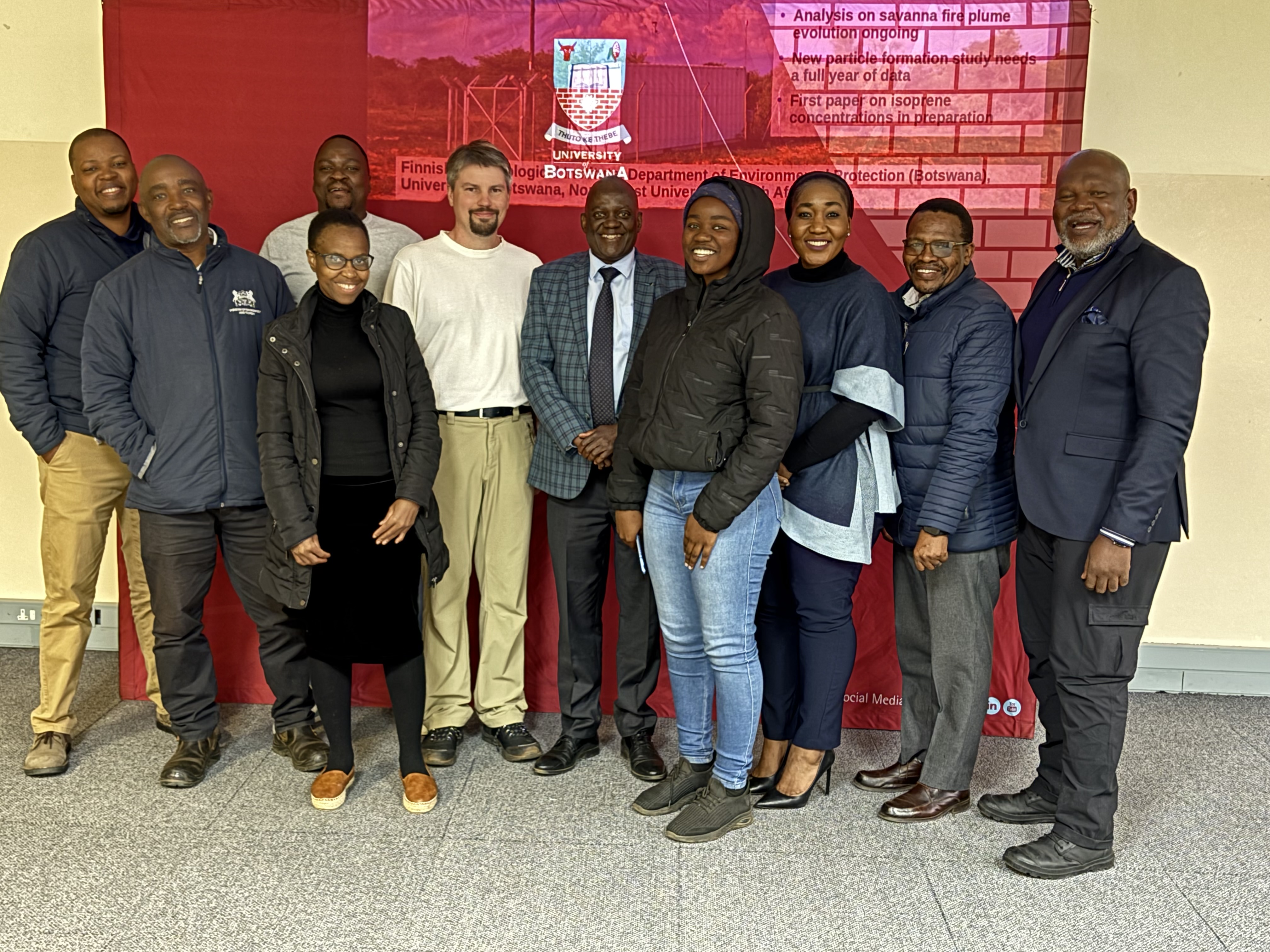UB Partners with Finnish Scientist to track Smoke and Air Quality in Xhaoga – Okavango Delta

A groundbreaking research initiative led by the Finnish Meteorological Institute (FMI), in collaboration with the University of Botswana (UB), the Department of Environmental Protection under the Ministry of Environment and Tourism, and South African partners, has established Botswana’s first advanced air monitoring station in the Okavango Delta.
Located near Xhaoga village, the station is only the second major atmospheric research site in continental Africa. The research focuses on studying tiny airborne particles known as aerosols. The particles said to be originating from sources such as dust, wildfires, traffic, and household emissions pose serious health risks and influence both weather patterns and climate systems.
Speaking at a presentation, hosted by UB’s Department of Chemistry on findings at the site, Dr Ville Vakkari of the FMI indicated that the station has been collecting data since August 2024. Adding that early findings show that there were new particle formations, a key process in air pollution much less frequent in Botswana than in South Africa.
Furthermore, Dr. Vakkari highlighted that smoke from local fires was found to contain high levels of black carbon and organic matter, both of which contribute to atmospheric warming and cloud formation.
Moreover, the research team aims to maintain long-term operations at the site to deepen understanding of air quality in relatively clean environments and monitor how it evolves over time.